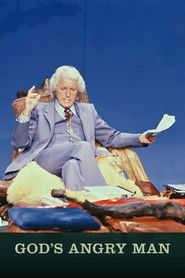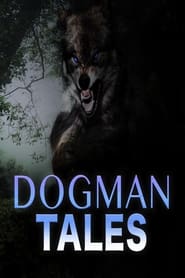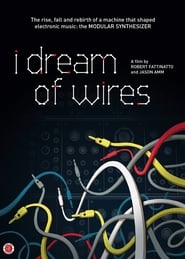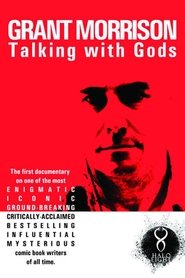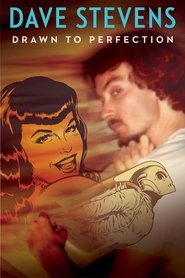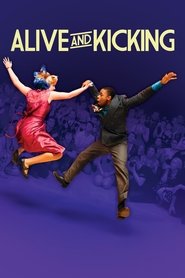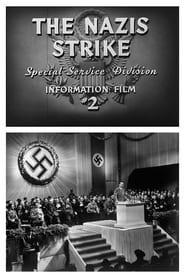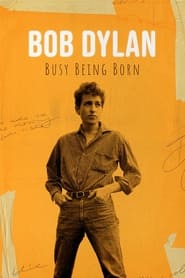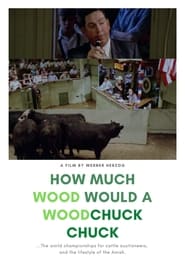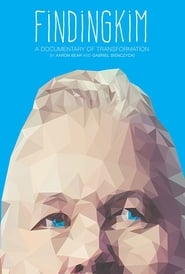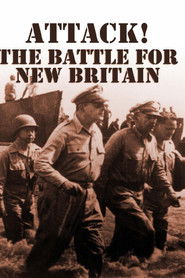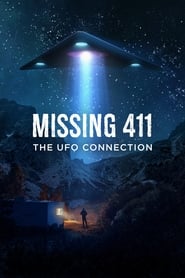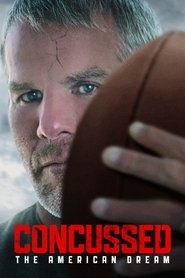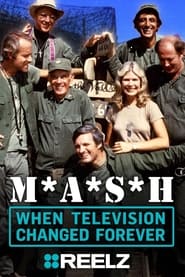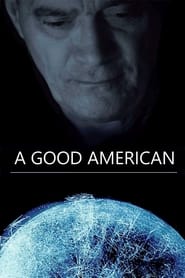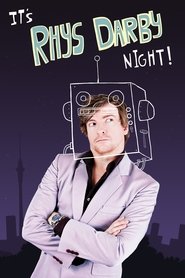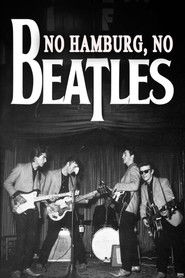Popular Documentary Movies on Plex - Page 52
-
God's Angry Man
1983
God's Angry Man
1983
star 5.4The documentary follows Gene Scott, famous televangelist involved with constant fights against FCC, who tried to shut down his TV show during the 1970s and '80s, and even argues with his viewers, complaining about their lack of support by not sending enough money to keep going with the show. -
Diddy: Monster's Fall
2025
star 5.8Disgraced hip-hop mogul, Sean 'Diddy' Combs could no longer buy his way out of trouble when a September 2024 grand jury indicted Combs on a racketeering conspiracy including sex trafficking, forced labor, and bribery. No bail meant jail. -
Dogman Tales
2022
Dogman Tales
2022
What is Dogman? How is it related to Sasquatch? In this compelling documentary several researchers and experts discuss the Cryptid Dogman. -
I Dream of Wires
2014
I Dream of Wires
2014
star 6.5An independent documentary film about the phenomenal resurgence of the modular synthesizer — exploring the passions, obsessions and dreams of people who have dedicated part of their lives to this esoteric electronic music machine. Inventors, musicians, and enthusiasts are interviewed about their relationship with the modular synthesizer — for many, it's an all-consuming passion. -
Grant Morrison: Talking with Gods
2010
star 7Philosopher, pop-icon, shaman and story teller - as one of the most influential comic book writers in the market today, Grant Morrison is all of these things. His explosive and often controversial 30 year career has made him a household name for comic fans, and he shows no signs of slowing down. Morrison's career is now taking a new turn, as he explores media beyond comic books. With film and television projects on the horizon, more and more people are asking "Who is Grant Morrison?" Grant Morrison: Talking with Gods is a feature length documentary that takes an in depth look at the life, career and mind of the man behind such pivotal titles as Batman RIP, The Invisibles, All Star Superman, The New X-Men, and many more. Featuring candid interviews with Morrison and his most important collaborators, Talking with Gods reveals an intelligent and thought provoking side of comic books that is often overlooked in Hollywood adaptations. -
Dave Stevens: Drawn to Perfection
2022
Dave Stevens created The Rocketeer and reintroduced the world to 50's pin-up model Bettie Page. While carving out his own unique corner of importance in comic book and illustration art, Dave showed the world what it's like to pursue the life of a creative individual. -
Alive and Kicking
2017
Alive and Kicking
2017
star 6.9Alive and Kicking gives the audience an intimate, insider’s view into the culture of the current swing dance world while shedding light on issues facing modern American society. -
Why We Fight: The Nazis Strike
1943
star 6.3The second film of Frank Capra's Why We Fight propaganda film series. It introduces Germany as a nation whose aggressive ambitions began in 1863 with Otto von Bismarck and the Nazis as its latest incarnation. -
Bob Dylan: Busy Being Born
2020
Few musicians have made an impact throughout the decades as seismic as Bob Dylan. Retrace his journey, from humble folk beginnings in Hibbing, to the bustling electric Greenwich Village. -
How Much Wood Would a Woodchuck Chuck
1976
star 6.3A documentary short examining the language and performance of auctioneering, filmed at the World Livestock Auctioneer Championship in Pennsylvania. -
Finding Kim
2016
Finding Kim
2016
star 6.250 year old Kim is transitioning from female to male gender over a period of four years. The story follows his life, surgery and struggles with his self-image and self-acceptance. Alongside Kim's narrative are interviews with luminaries in the field and trans community. -
Attack! The Battle for New Britain
1944
star 6Actual footage by the United States Signal Corps of the landing and attack on Arawe Beach, Cape Glouster, New Britain island in 1943 in the South Pacific theatre of World War Two, and the handicaps of the wild jungle in addition to the Japanese snipers and pill-box emplacements. -
Missing 411: The U.F.O. Connection
2023
star 3.5In Missing 411: The UFO Connection, David Paulides continues the story of people who vanish in the wild without a trace. In his third documentary, David reveals the first evidence documenting a link between UFOs and missing people. -
How Lucky China
2006
How Lucky China
2006
Follows Long Island’s Mary Lamont Band on their groundbreaking 23,000-mile tour in six cities and provinces across mainland China in 2002. -
Concussed: The American Dream
2024
Tyler Sash was drafted by the New York Giants and became a part of the 2012 Super Bowl winning team. Concussions would cut Sash's career short and the film is paralleled by NFL Hall of Famer Brett Favre's CTE experience. -
M*A*S*H: When Television Changed Forever
2022
In M*A*S*H: When Television Changed Forever cast and crew reveal their battles with network executives to keep the show alive, their first days on set, favorite episodes, what they think made the show a mega hit and why it endures today. -
A Good American
2015
A Good American
2015
star 7A Good American tells the story of the best code-breaker the USA ever had and how he and a small team within NSA created a surveillance tool that could pick up any electronic signal on earth, filter it for targets and render results in real-time while keeping the privacy as demanded by the US constitution. -
It's Rhys Darby Night!
2011
star 4Hey party-goers, look who’s back! This is the long awaited return of ME on DVD. I developed this show on the road and received big LOL’s in LA, London, Edinburgh, and parts of Australia. Finally I toured my home country, New Zealand. It was absolutely choisome! (choice + awesome). Loads of you turned up, so thanks for jumping on board. Here’s the final stop on the Darby train – The mighty Civic Theatre, Auckland. In the extra’s section I have put together behind the scenes footage from the NZ tour, and my favourite characters, Bill Napier and Ron Taylor make an appearance. It’s Rhys Darby night! -
No Hamburg, No Beatles
2024
star 7.5“We were born in Liverpool but grew up in Hamburg”, John Lennon once said. This feature documentary seeks to find the truth in those words. The long and winding road that the Beatles took to worldwide fame passed through Hamburg, Germany in the early 1960s. Only a couple of years before they became household names, the former Quarrymen were cutting their musical teeth on nightclub stages in the city. Hamburg had become the vice capital of Europe after World War Two, its neon-lit streets home to sailors, sex workers, drug dealers, gangs and low life. Meanwhile, the English band was still developing, still young and virtually unknown. By the time of their last German visit in 1966, the Beatles were an international phenomenon. 'No Hamburg, No Beatles' explains how learning their trade in this fascinating city helped propel them to global stardom.
 Netflix
Netflix
 Amazon Prime Video
Amazon Prime Video
 Apple iTunes
Apple iTunes
 Apple TV Plus
Apple TV Plus
 Disney Plus
Disney Plus
 Google Play Movies
Google Play Movies
 Paramount Plus
Paramount Plus
 Hulu
Hulu
 HBO Max
HBO Max
 YouTube
YouTube
 fuboTV
fuboTV
 Peacock
Peacock
 Peacock Premium
Peacock Premium
 Amazon Video
Amazon Video
 The Roku Channel
The Roku Channel
 AMC+
AMC+
 Kocowa
Kocowa
 Hoopla
Hoopla
 The CW
The CW
 Vudu
Vudu
 Starz
Starz
 Showtime
Showtime
 PBS
PBS
 Pantaflix
Pantaflix
 FXNow
FXNow
 Tubi TV
Tubi TV
 Kanopy
Kanopy
 Comedy Central
Comedy Central
 Crunchyroll
Crunchyroll
 Microsoft Store
Microsoft Store
 Redbox
Redbox
 Sun Nxt
Sun Nxt
 ABC
ABC
 DIRECTV
DIRECTV
 Crackle
Crackle
 Fandor
Fandor
 Plex
Plex
